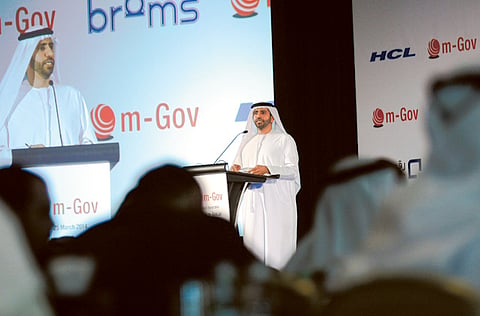Data protection must be ‘top priority’
Mobile malware presents itself as a considerable risk to the government entities that are focusing on smartphones, says Symantec

Dubai: A successful mobile government strategy must not only address the incredibly complex infrastructure required but also ensure that the infrastructure is secure, managed, and up and running to maintain a positive user experience, said an industry expert.
“Mobility’s promise is great, but so is the expanded potential for lost data, breached confidentiality and even broken laws. As the world becomes more interconnected, the risks increase,” Kevin Isaac, Regional Vice-President of Symantec, said in the keynote speech.
He highlighted the unique opportunities and challenges which characterise the region as a forerunner in ‘smart city’ adoption and innovation, while providing insights into creating secure mobile government services for decision-makers in the Gulf.
He said there are 2.5 billion interconnected devices now globally and by 2015 there will be 15 billion devices, rising further to 20 billion devices by 2020.
Opportunities for hackers
He said that growing data will create more opportunities for hackers and mobile malware presents itself as a considerable risk to the government entities that need mobility to keep pace in today’s online-transacting world and to the citizens who expect to be connected anywhere, anytime.
The year 2014 marks the 10th anniversary of mobile malware which has grown six times last year, compared to 2012.
Mobile channels vulnerable
“Cyber criminals are banking on mobile channels as the new, unforged path to exploit vulnerable and unprotected devices, exposing confidential data and accessing sensitive information. He urged officials and authorities to make information protection among their most critical consideration, ensuring that users’ mobile devices and identities can be protected,” he said.
“The mobile government is going to be app-centric, so comprehensive mobile strategy within government organisations is needed to ensure that smart strategies are put into place as we make these visions a reality,” he said.



